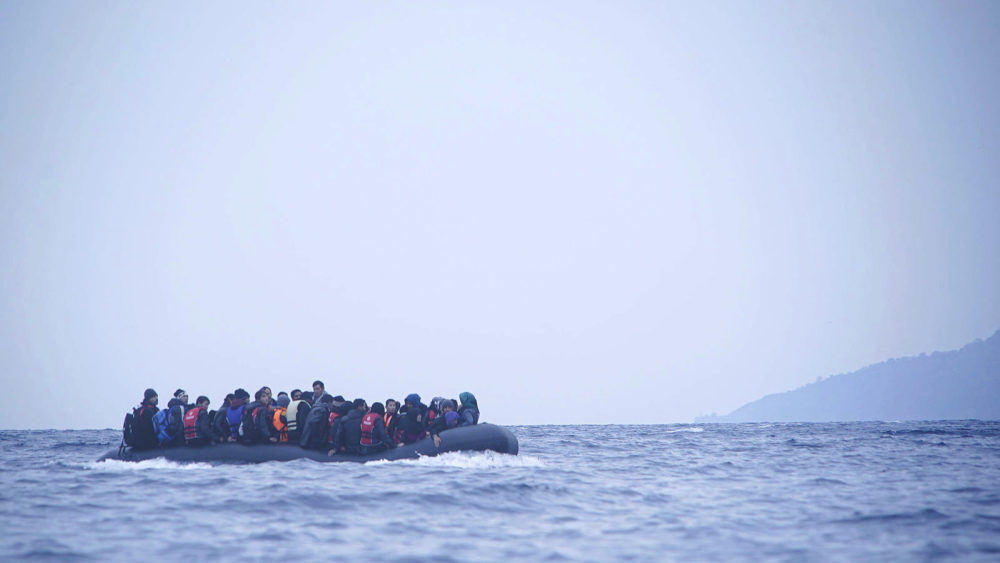The ancient Roman term for the Mediterranean, Mare Nostrum, literally means “Our Sea”. Today, the Eastern Mediterranean is rapidly turning into a maelstrom of naval alerts, as military forces across the globe sail into this contested space.
Sudden rises in military spending, notwithstanding a pandemic and economic volatility, add fuel to the increasingly bellicose tone between leaders, governments and people across the region. In a Pompeo-led initiative, the U.S. recently suspended its decades-old arms embargo against Cyprus thereby compromising historic international efforts to sedate Greco-Turkish tensions over the island. The US military has more recently announced that it might relocate the 50 nuclear warheads kept on the İncirlik base in Turkey to Cyprus, or to a Greek island in response to the threats coming from Ankara. Meanwhile, Turkey has announced its schedule for Russian live-fire naval exercises in the eastern Mediterranean.
French President Macron’s tweet, calling for “Pax Mediterranea”, formalises France’s haphazard efforts towards reigniting the grandeur of imperialist projects.
The public pronouncement, posted after the 7th Summit of the Southern EU countries, underscores the outcomes of the MED7 summit. Macron’s lobbying to endow the Greek side in this brewing conflict, seeks retaliation against Turkey’s challenging French ambitions in the Libyan conflict. The transnational investment in Libya’s strife had already revived Great Power rivalries in the Mediterranean just before and throughout the COVID-19 pandemic. Macron’s convoluted call for diplomacy in the Eastern Mediterranean, accompanied by flying the nuclear aircraft carrier named after de Gaulle, serves as a reminder that war continues to have the highest priority for those at the zenith of power.
We acknowledge the intricacy of tensions that historically plagued the Mediterranean. But it remains clear how gross wealth inequality, fractious relations, anachronistic competition over perceived ‘rich’ resources and a profusion of armaments have heightened nationalistic positions.
Macron, elected on a ticket of countering the toxic ethnonationalism of Marine LePen in 2017, now wants to encourage countries in the Eastern Mediterranean to that same poison of nationalist sabre-rattling and megalomania. The power games of the Libyan war threaten to move Eastwards, onto the Aegean, largely thanks to a disunited EU foreign policy. We must first identify the connections in order to sever these.
There cannot be true transformation and peace in Europe if other parts of the world live in misery, conflict, and war.
There will be no peace as state actors increasingly resort to militarized and surveillance tools in order to maintain the neoliberal status quo. Violating their own guidelines, EU States have ramped up conventional weapons’ exports to countries embroiled in conflicts and large-scale crimes against humanity. European countries must put an end to spreading violence abroad and must abstain from hiding behind the counter-terrorism and national security narratives.
Partly, European inaction on this conflict owes to a convoluted and self-harming North Atlantic conformity to the White House’s impulses, and its agenda on resource-wars with Russia. Since Pompeo’s visits, a Greek government firmly supported by local oligarchies has offered to make its debut as a prospective US-partnered salesman of natural gas to the EU, in the attempt to displace the Russian-Turkish energy alliance after Turkey’s deals with Russia over gas pipelines. Far from these waters, the US risks less than Europeans do, when picking sides between the nationalist governments and investors who currently jockey for maritime power and hydrocarbon-mining in this contested space.
DiEM25’s position on the Aegean and Mediterranean stays the same — we want a peaceful sea, cooperation and Shared Green Prosperity, decided upon by all Mediterranean countries whether they meet the Mare Nostrum on the European, African or West Asian coastline.
Today we seek Euro-Afro-Asian dialogue, liberated of imperial intermediation and freed of a profit incentive willing to risk large-scale war. Let us divert the billions poured on war preparations towards dealing with the human catastrophes we are witnessing in the Mare Nostrum. The upcoming Special European Council meeting marks one opportunity to change the course of confrontation. Prosperity, through cooperation, can reverse the tide on forces that promote escalation. While analysing the interests at work, we can envision a strategy towards calm in the region that birthed civilisational riches to the world and belongs to the common heritage of humankind.
This new vision should be democratically constructed by the people of the region, a task that DiEM25 invites citizens to imagine how to establish peace, along with political, economic and social unity of European countries from the Atlantic to the Ural Mountains.
We invite you to join us on this voyage and as a first step, to complete our International Policy questionnaire.
The DSC acknowledges the valuable contributions by Arturo Desimone and Amir Kiyaei. Arturo Desimone and Amir Kiyaei are both members of DiEM25 and its thematic DSC Peace and international Policy.
Photo Source: Wikimedia Commons.
Do you want to be informed of DiEM25's actions? Sign up here















